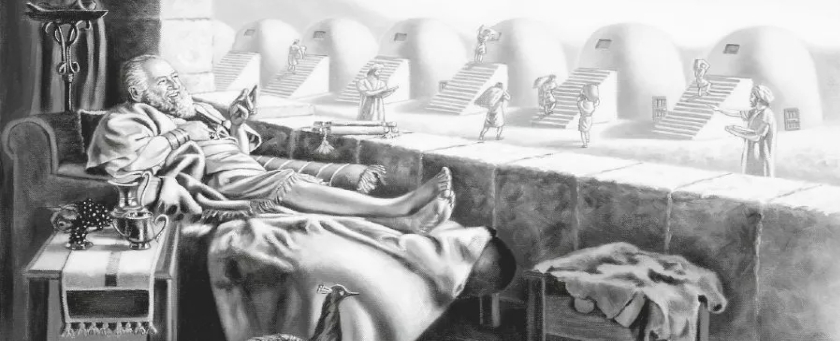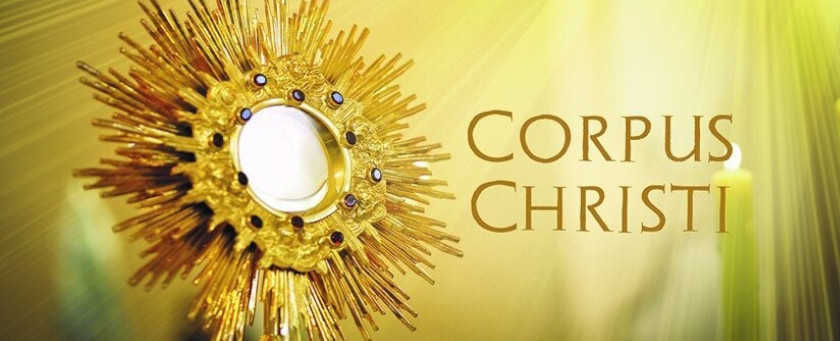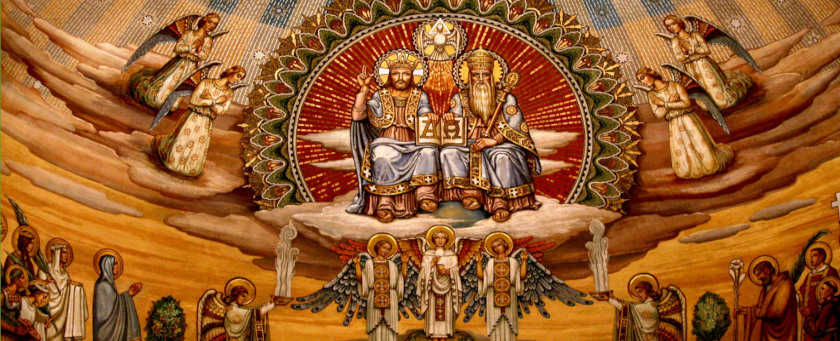Grow Rich In What Matters to God
Eighteenth Sunday in Ordinary Time, Year C

Readings:
Ecc. 1:2; 2:21-23; Ps. 90; Col. 3:1-5, 9-11; Lk. 12:13-21
(Audio recorded live, 30 July 2022)
Lord, teach us to number our days aright, that we may gain wisdom of heart. This line from today’s psalm really stands out to me as the core teaching of our readings: Teach us to number our days aright, that we may gain wisdom of heart. What is the meaning and purpose of life? Why did God make us? The old Baltimore Catechism says, God made us to know Him, to love Him, and to serve Him on earth, and to be happy with Him forever in heaven. But, what kind of service does God desire from us?
In our first reading, Qoheleth points out how futile all our labor is, and how one day we will have to leave our property to someone who has not worked for it. That is to say, whatever we work for throughout this life, whatever we build here on earth, must remain here on earth, because we cannot take it with us. So, it seems rather futile, especially given the amount of anxiety that is often caught up with owning property. We become overly concerned about protecting it, preserving it, keeping it safe from burglary. And then, for all that care, we simply leave it to someone else, who often has less appreciation for the work that was done to afford such an inheritance. It would seem the only way to instill such appreciation would be to allow the next generation to do their own work. But, it would seem that today, as in Jesus’ day, spoiled children continue to bicker over an inheritance they did nothing to afford. That is what the problem is in today’s Gospel, is it not? A man trying to have Jesus settle a dispute about his inheritance. And what does Jesus say? “Friend, who appointed me as your judge and arbitrator?” Jesus has no interest in dealing with such petty disputes, which is why he teaches the crowd: “Take care to guard against all greed…for one’s life does not consist of possessions.”
There is value in being able to provide some kind of inheritance for the next generation. This has been baked into life on this earth for millennia. In the Book of Genesis, for instance, God entrusts the earth to Adam, saying, “Fill the earth and subdue it” (Gn. 1:28). In other words, God desires that we continue in existence through procreation and generation, and to take possession of our God-given land, therefore, whatever work we do, whatever property we acquire, whatever riches we amass, they were first entrusted to us by God. That means whatever we think we own actually belongs to God. St. Augustine tells us that we are to use the things of this earth, then, insofar as they assist us to reach our destination, which is heaven. Qoheleth asks, “For what profit comes to man from all the toil and anxiety of heart with which he has labored under the sun? All his days sorrow and grief are his occupation; even at night his mind is not at rest.” Such is the difficult plight of those who focus too much on storing up wealth in this world.
God gives us everything we need, but there is a tendency for us to take this the wrong way. Jesus teaches that we are to rely on God for what we need, but that does not mean we should remain idle. St. Paul warns against idleness saying, those who do not work should not eat (See 2 Thess. 3:10). So, how are we to square this reliance on God with our temporal needs? Well, if God has entrusted the earth to us, we are tasked with cultivating it to support our needs. But, in cultivating, we are tempted to take possession of it as though it belongs to us. Again, Jesus teaches that once the seed is planted it grows, yet the farmer knows not how. In other words, we do the planting, God brings forth the growth.
There are other ways of growing that are often overlooked. Remember our psalm: Teach us to number our days aright, that we may gain wisdom of heart. Are we seeking to grow in wisdom? And is it not wise to acknowledge that whatever work we do, unless we do it for God, our labor is in vein? Vanity of vanities, says Qoheleth! All things are vanity! There is more to us than what meets the eye. We are not mere animals, but embodied spirits. And our soul is like to God because it is a spirit and can never die. If we hope to gain wisdom of heart, we do well to acknowledge this aspect of who we are as children of God.
St. Paul encourages us to put on the new self, “which is being renewed, for knowledge, in the image of its creator.” In other words, our baptism is a constant source of renewal in the knowledge of God. Recognizing this is wisdom, just as fear of the Lord is the beginning of wisdom. Consider those who have been away from the Church, but have suddenly found themselves desiring to be here again. What is this if not renewal? Baptism is like opening a door to unending grace, if only we allow ourselves to be renewed by this grace.
Jesus is not interested in what treasures we have stored up for ourselves, but rather that we be rich in what matters to God. On one hand we have material, on the other, we have grace. How often have we grabbed hold of God’s grace? How often do we ask for God’s grace? How often do we seek to be renewed by God’s grace? Teach us, O Lord, to number our days aright, that we may gain wisdom of heart.
And so, as we seek to be renewed by God’s grace today, may the grace of the Blessed Sacrament flow over us like a torrent; may we be renewed in the knowledge and image of God; and may we seek to be rich in what matters to God. This truly is wisdom of heart, perhaps the one possession we not only leave to others, but take with us to heaven.





Twitter
Facebook
Pinterest
Email